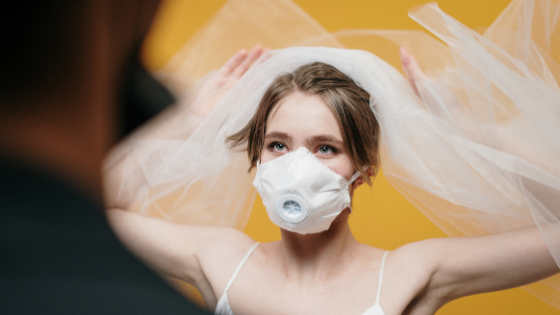I know this is the question that a lot of us are wondering right now. Our industry has been turned upside down by this pandemic.
But as you know, when it comes to Covid-19, there are certainly more questions than answers. But as countries start to open up and quarantine rules get more relaxed, engaged couples may wonder what the possibilities are.
I too, along with colleagues in the wedding and event industry, am wondering about this. And while we are all hopeful that things will return to some level of normalcy, the reality is that we need to be responsible and start thinking about the things that more than likely will have to change.
In Trinidad where I am based, we are yet to receive word on when events will resume in our phased re-opening of business operations. We are also hopeful that official guidelines would be put forward as to how these events are to take place. But until then, the following are some of the major elements that may need to change for post-Coronavirus weddings:
Guest Count – For sure, we can expect this would need to change. I expect that as places open up more, there will be limits on how many people can gather in one location. Besides legal restrictions, guests too may not be comfortable in large crowds. Wedding venues will likely make stipulations on this based on their own capacities. Couples will also have to consider that their vendors working during their wedding at either the ceremony or the reception will also need to be factored into this maximum guest count. Intimate weddings with only close family members will be more commonplace. Extra guests could be invited to join via Zoom or similar video service. One advantage of smaller weddings is that couples can now spend more of their budget on décor and details to truly make the day even more memorable!
Food & Bar – Given the nature of how a virus spreads, some of the usual food and drink aspects of a wedding will have to be altered. Self-served buffets and live cooking stations will be a thing of the past. These would be replaced by plated service or food stations manned by servers (with masks and gloves, of course). In like manner, a bar is a natural gathering spot, so drinks would better be served via floor service.
Layout & Décor – The belief that the virus spread is restricted in open spaces may encourage more outdoor ceremonies and receptions. Many couples may opt to have a legal ceremony prior to their reception with just the witnesses in their place of worship. With a limited supply of outdoor venue options for rent, many homes and backyards may serve as wedding venues. Regardless of the venue, reception layouts would focus on social distancing through spacing tables further apart and limiting the number of chairs around each table. Having a structured floor plan and assigned seating would also allow the grouping of households. To avoid long lines at the entrance, guests would get advanced notice of their seat assignments. Table décor may be simplified to minimize multiple touchable surfaces – chargers, cloth napkins, cutlery, glassware. Focus can be placed on non-contact elements of the design such as drapery, backdrop structures, and lighting. There is definitely an opportunity to be creative with wedding ceremonies and reception layouts going forward.
Activities – Weddings traditionally include a DJ and after-dinner dancing. In our post-COVID-19 wedding forecast, I see interactive activities like dancing being replaced by live entertainment that supports the social distancing of guests. Musicians, illusionists, contortionists, and comedians may now provide entertainment to guests. Whilst the first dance and cutting of the cake may remain, certain other traditional elements like the tossing of the bouquet may be tossed out altogether.
Hygiene – Hygienic practices would certainly be ramped up with guests wearing masks or face covers. In fact, some couples may even have specially-made wedding face masks for guests. Hand sanitizer stations and customized signage could fit into the wedding’s design.
Wedding vendors will have to look at how they currently operate and make adjustments where necessary. If you are planning a wedding soon, your planner (and yes, we suggest you get one even for small weddings) will develop a sanitation and safety plan that can be shared with all vendors.
This list is by no means exhaustive and as we navigate our way through this pandemic, we can certainly expect the norms in our industry to keep evolving.
